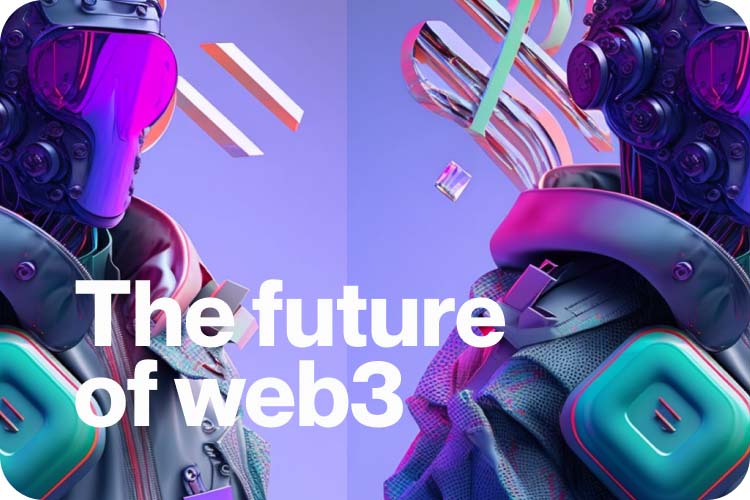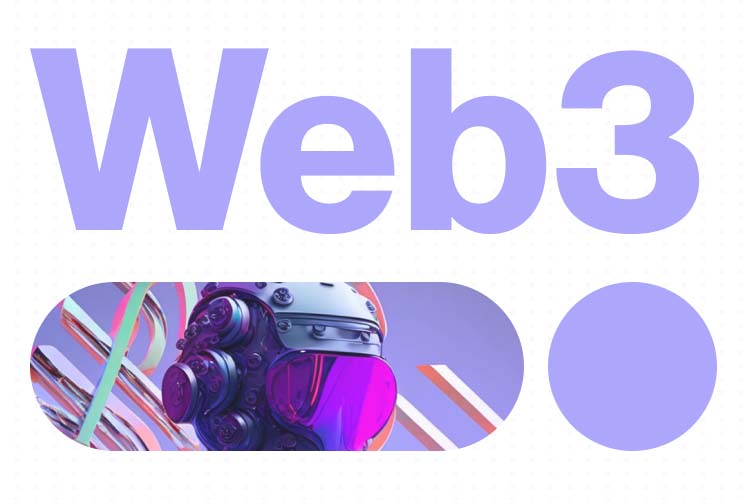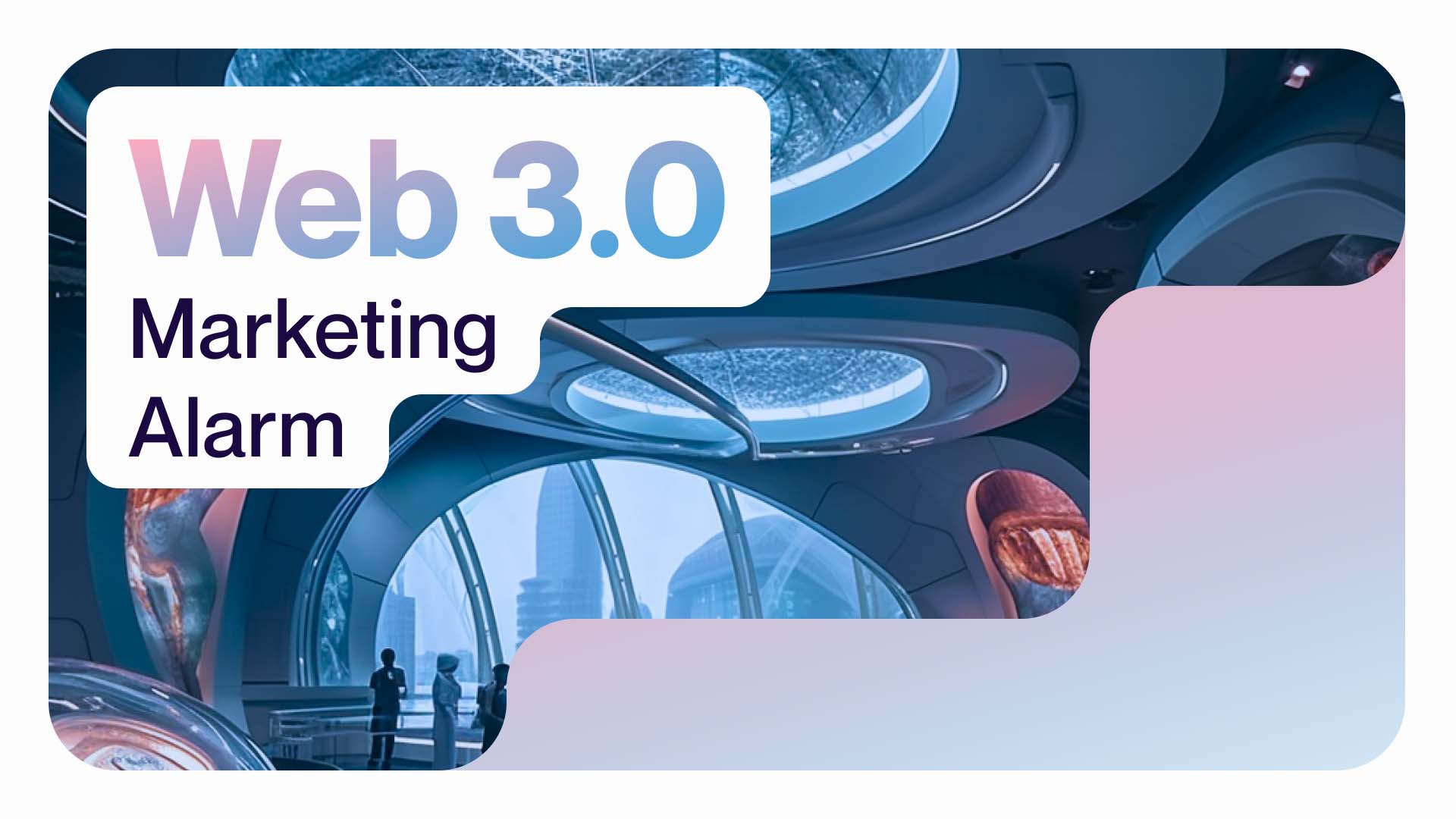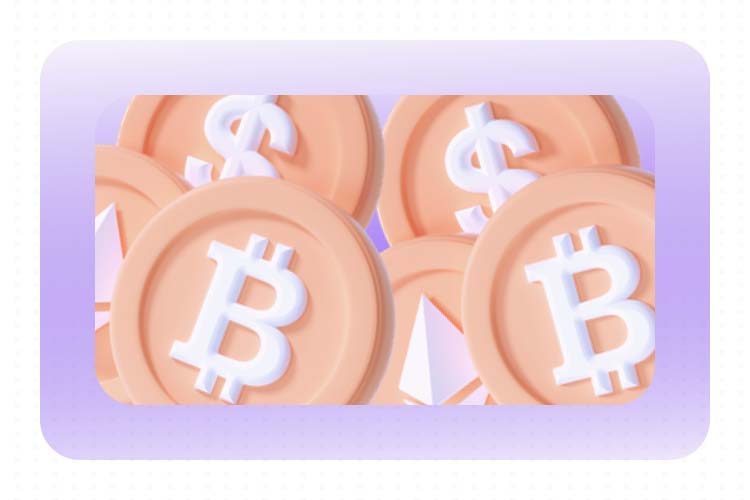The internet has revolutionized the way we interact with each other, conduct business, and share information. Since its inception, the internet has continuously evolved, and we are now entering a new era with the emergence of Web3. Understanding Web3 and its potential impact on our lives is essential for anyone who wants to stay ahead of the curve.
To understand the importance of Web3, check out some stats:
The Global Web 3.0 Blockchain Market revenue is expected to reach a USD 23.3 billion value in 2028.
The term Web3 gets searched 195,000 times per month on Google.
By 2026, about 2 billion people worldwide “will spend at least one hour a day in the metaverse to work, shop, attend school, socialize or consume entertainment,” per McCann Worldgroup.
In this article, we will explore the relationship between money and happiness in Web3, the advantages and opportunities that Web3 offers compared to traditional finance, the future of Web3 in technology and society, as well as the risks and challenges that come with this new technology. If you bear with us until the end of the post, you will get a guide for beginners wanting to start with Web3.
Understanding Web3: The Future of the Internet
Web3, also known as the decentralized web or the blockchain-based web, is the next iteration of the internet. It is built on decentralized technologies such as blockchain, peer-to-peer networking, and smart contracts. Unlike the current centralized web, Web3 is designed to be more secure, transparent, and resistant to censorship.
Web3 can potentially transform various industries, including finance, healthcare, energy, and education. It can also enable new applications and business models that were previously impossible or impractical. For example, Web3 can enable decentralized finance (DeFi) applications that allow people to lend, borrow, and trade without intermediaries. It can also enable decentralized social media platforms that put users in control of their data and content.
The Relationship Between Money and Happiness in Web3

Money has always been a crucial factor in people’s lives and is often seen as a means to achieve happiness. However, the relationship between money and happiness is complex, and it varies depending on the individual’s circumstances and values. In Web3, money can play a different role than in traditional finance, and its impact on happiness may also differ.
One of the main advantages of Web3 is that it enables people to have more control over their money and assets. With Web3, people can store their assets in decentralized wallets that they control rather than in centralized institutions that may be vulnerable to hacks or seizures. This can increase people’s sense of security and autonomy, which can contribute to their overall happiness.
In addition, Web3 can enable new ways of earning money and participating in the economy. For example, people can earn cryptocurrency by contributing to decentralized networks or by providing liquidity to DeFi protocols. This can create new opportunities for people who may not have access to traditional financial services or job opportunities.
However, the volatility and uncertainty of cryptocurrencies and other Web3 assets can also pose risks to people’s financial and emotional well-being. It is essential to approach Web3 investments with caution and to diversify one’s portfolio to mitigate risks.
Web3 vs. Traditional Finance: Advantages and Opportunities
Web3 offers several advantages over traditional finance. In traditional finance, intermediaries such as banks, brokers, and regulators play a crucial role in facilitating transactions and enforcing rules. However, these intermediaries can also be a source of friction, cost, and corruption.
1. Decentralization
One of the main advantages of Web3 is its decentralized nature. Unlike the traditional web, which a few big players control, Web3 is built on decentralized systems that are not controlled by any single entity. This means that users have more control over their data and privacy, and no central point of failure exists.
2. Security
In Web3, transactions can be executed directly between peers without intermediaries; hence it is virtually impossible to hack or manipulate. All transactions are verified and recorded on a public ledger, making it transparent and tamper-proof. This can reduce transaction costs, increase speed and efficiency, and enable new forms of collaboration and innovation.
3. Transparency
Web3’s decentralized nature also makes it more transparent. Because all transactions are recorded on a public ledger, it is easy to verify and audit them. This can help reduce fraud and corruption in industries like finance and government.
4. New business models
Web 3 enables new business models that were considered impossible previously. For example, decentralized finance (DeFi) enables people to borrow and lend money without the need for traditional banks.
It can also provide new opportunities for creators and entrepreneurs. For example, non-fungible tokens (NFTs) can enable creators to monetize their digital art, music, and other creations by selling them as unique and scarce assets. This can create new revenue streams for creators and enable new fan engagement and community-building forms.
5. Accessibility
Another advantage of Web3 is that it can enable greater financial inclusion and empowerment. With Web3, people can access financial services and opportunities regardless of their location, income level, or identity. Web3 can also enable new forms of peer-to-peer lending and crowdfunding, which can provide alternative funding sources for individuals and businesses.
Web3 offers a wide range of advantages and opportunities compared to traditional finance, but it also comes with its own risks and challenges.
The Future of Web3: Technology and Society
Both technological advancements and societal changes will have a big impact on the future of Web3. Here are some key factors that will shape the future of Web3:
Technological advancements
Web3 is still in its early stages of development, and there is much room for technological advancements. These advancements may include scalability, interoperability, privacy improvements, and the development of new applications and use cases.
For example, decentralized finance (DeFi) advancements could lead to a more equitable and transparent financial system. In contrast, improvements in decentralized identity solutions could enhance digital identity management and reduce the risk of identity theft.
Societal changes
Societal changes, such as increased awareness of data privacy and the growing demand for decentralized solutions will also influence Web3. As people become more aware of the risks of
centralized systems and the potential benefits of decentralized ones, they may demand more decentralized solutions in various industries, including finance, healthcare, and social media.
Additionally, Web3 may be influenced by societal shifts towards more equitable and sustainable systems. For example, blockchain-based solutions could help address issues such as climate change and supply chain transparency by creating more traceable and sustainable systems.
Regulation
Regulatory developments will also influence the future of Web3. As Web3 technologies become more mainstream, governments and regulatory bodies will need to develop regulations that ensure users’ safety and security while promoting innovation.
Regulations may include data privacy laws, financial regulations, and regulations around decentralized governance models. Balancing regulation and innovation will be a key challenge for the future of Web3.
Risks and Challenges of Web3: Security and Volatility
Web3 presents both opportunities and challenges. While the benefits are significant, risks must be addressed to ensure the success of the decentralized web. Two of the main challenges are security and volatility.
Security
Web3 is built on blockchain technology, which is known for its security. However, there are still risks associated with it. For example, smart contracts, which are self-executing contracts with the terms of the agreement between buyer and seller directly written into code, can have vulnerabilities that hackers can exploit. Additionally, while the blockchain itself may be secure, the applications built on top of it may not be, leaving users vulnerable to attacks.
Volatility
Another challenge of Web3 is volatility. The value of cryptocurrencies, which are often used in Web3 applications, can fluctuate rapidly, making them risky investments. This volatility can make it difficult for businesses and investors to plan and make decisions and can lead to financial losses for individuals who invest in the wrong assets.
Other challenges of Web3 include
Adoption
While Web3 has the potential to disrupt many industries, it is still in its early stages of development. Adoption of Web3 technologies will require significant education and awareness campaigns to help users understand the benefits and how to use them.
Interoperability
Web3 is made up of many different blockchain networks, each with its own protocols and standards. Interoperability between these networks can be a challenge, which may limit the potential benefits of Web3.
Governance
Web3 is community-driven, which means that there may be challenges in establishing governance structures that are fair and effective. Governance models must be developed to ensure that the interests of all stakeholders are represented.
Web3 assets
Assets such as cryptocurrencies and NFTs are subject to volatility and market fluctuations, which can pose risks for investors and traders. Moreover, Web3 assets are also vulnerable to hacks, thefts, and scams, which can result in significant user losses. Therefore, being informed and cautious when investing in Web3 assets is crucial.
Furthermore, Web3 also poses new challenges for security and privacy. While Web3 offers greater security and autonomy compared to traditional finance, it also requires users to take greater responsibility for their security. For example, users must safeguard their private keys and passwords and avoid phishing and other scams.
How to Get Started with Web3: A Guide for Beginners
If you are new to Web3 and want to get started, here are some tips to help you navigate this exciting new world:
1. Educate yourself
Start by learning about Web3 and its potential impact on different industries and areas of life. Many resources are available online, including articles, videos, podcasts, and courses.
2. Choose a wallet
To get started with Web3, you will need a wallet to store and manage your assets. Many wallets are available, including hardware wallets, software wallets, and mobile wallets. Choose one that fits your needs and preferences.
3. Buy some cryptocurrency
To participate in Web3, you will need some cryptocurrency, such as Bitcoin or Ethereum. You can buy cryptocurrency on centralized exchanges, such as Coinbase, or decentralized exchanges, such as Uniswap.
4. Try some decentralized applications
There are many decentralized applications (dApps) available on Web3, including DeFi protocols, NFT marketplaces, and social media platforms. Try some of them to see how they work and what they offer.
5. Stay informed and cautious
Web3 is still an emerging and rapidly evolving field with many risks and uncertainties. Stay informed and cautious when investing in Web3 assets and participating in decentralized applications. Research projects and teams before investing or using their products, and keep up with the latest developments and trends in the space.
Conclusion
In conclusion, Web3 represents a major shift in how we use and interact with the internet, and it offers many advantages and opportunities compared to traditional finance. Web3 enables greater autonomy, transparency, and security, and it can provide new opportunities for creators, entrepreneurs, and investors.
However, Web3 also comes with its own risks and challenges, especially regarding security and volatility. Moreover, Web3 raises important questions and challenges for technology and society, such as governance, privacy, and power.
If you are interested in Web3, it is crucial to educate yourself, choose a wallet, buy some cryptocurrency, and try some decentralized applications. However, staying informed, cautious, and aware of the risks and uncertainties of this emerging and rapidly evolving field is also important.
Web3 represents a major opportunity for individuals and society to redefine how we use and interact with technology and build a more decentralized, transparent, and equitable future. By diving into Web3 today, you can be part of this exciting journey and help shape the future of the internet.



